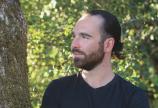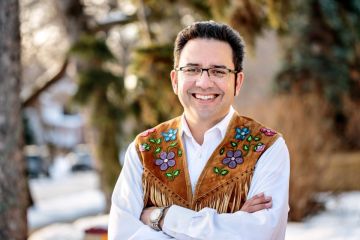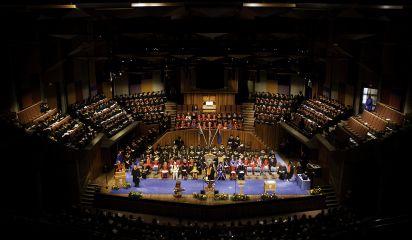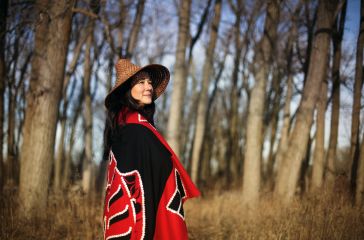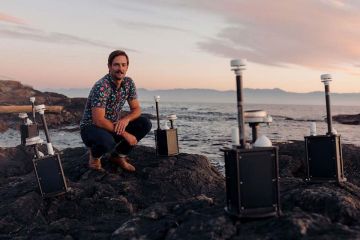Vox alumni: Work in progress
- Jonathan Carr
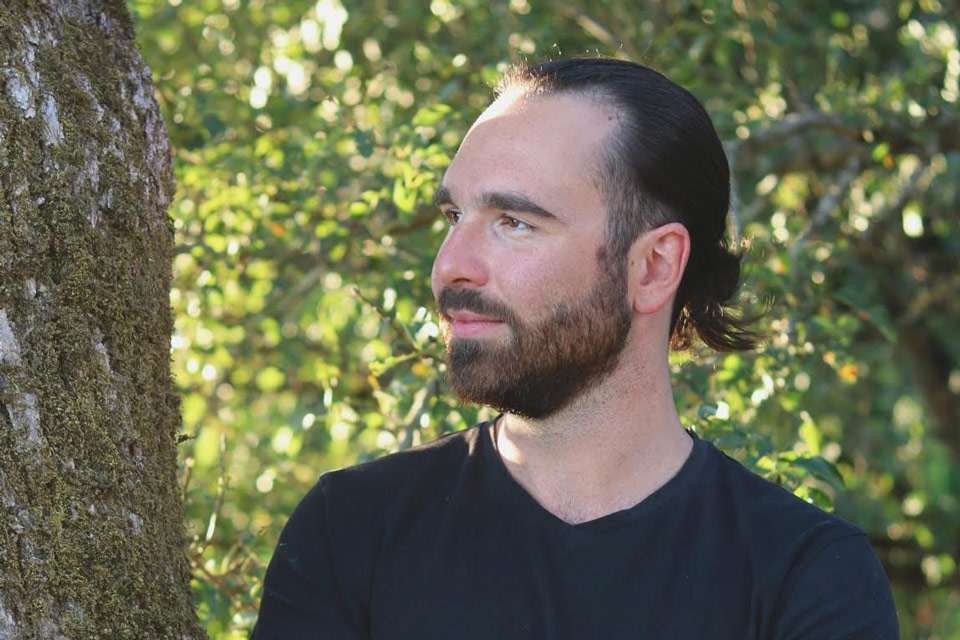
Jonathan Carr (BSc ’10, BEd ’12) is constantly learning in his role as teacher and listens more than he speaks.
Since I was young, I knew that teaching was going to be part of my life. I would set up a pretend classroom to teach my little sister. At dinners, I implemented tests on family trivia. I even kept a progress report on everyone’s scores. I also loved filmmaking and baseball, which are now hobbies that balance my life. My career—and my purpose—is in teaching.
I grew up as a visitor on Coast Salish lands of the Lekwungun-speaking peoples, and recently moved farther west, spending most of my time on T’Sou-ke, Sc’ianew and Pacheedaht Nation’s territories. I first worked with the W̱SÁNEĆ, where I learned to sing and drum a few of their traditional songs with students, teachers and Elders. I’ll never forget making a drum and learning the tradition of giving away the first one made. I presented it to my grandmother.
Since graduating from the University of Victoria with a BSc in 2010 and a BEd in 2012, and also earning a master’s degree, I’ve served in a variety of roles with Indigenous communities, both on-reserve and off-reserve, in international urban centres and remote towns, as an Aboriginal Education literacy instructor, classroom teacher, enhancement-agreement coordinator, principal and vice-principal, and even in a classroom overseas. I’ve learned to listen and observe more than I speak. Learning some of the languages of the people—SENĆOŦEN, Kwak̓wala, Michif and Hul’q’umi’num’—went a long way in showing respect and reciprocity for the community.
The lessons I learned along the way were never easy at the moment. But they taught me that mistakes are opportunities to listen, reflect and grow. When we grow, we show respect and build relationships. Relationships lead to rapport. Relationships lead to support. We can create healthy student-teacher relationships by making connections and through sharing stories and humour. We can balance love with boundaries and accountability. Remember that all our students are someone’s child. Bridge the gap between the learning environment and the home environment.
If a family doesn’t have access to internet, I may reach out to them with a phone call, or a written note. I may invite them into the school. The positive connections with our families and community can be felt more widely than we may think. The energy of every interaction can be felt—whether positive, neutral or negative—down a chain of connections. I let families know I noticed their child.
I’ve stumbled at times. Each Nation has its own histories and stories, and I once assumed that a story from one Nation would fit the territory on which I taught. When we were learning about early civilizations and the movement of people through Earth’s time periods, my Indigenous students pointed out that I hadn’t specifically acknowledged their people’s traditional creation story. Later that month, I consulted with the community to find the appropriate Elder to tell the story to the class.
School did not prepare me for difficult or uncomfortable conversations. I learned that I am not here to “fix”— no one is. I am here to listen, acknowledge, and honour another’s truths within that uncomfortable yet healing space.
Educators are helping to create a new path after generations of oppression against Indigenous people. We are in the very early stages of this. As educators, we are also helping to lead parents, families and communities, as well as the next generations to come. It takes courage for us to move forward with education, reconciliation and building a future for our children. Each emotional experience can change attitudes.
Don’t lose hope, even in the most challenging situation, confrontation or conversation: If this isn’t the time, when will it ever be?
Thank-you, Hych’ka, Klecoo! Klecoo! Gilakas’la, Marsee!
Photos
In this story
Keywords: alumni, Indigenous, education
People: Jonathan Carr
Publication: The Torch

